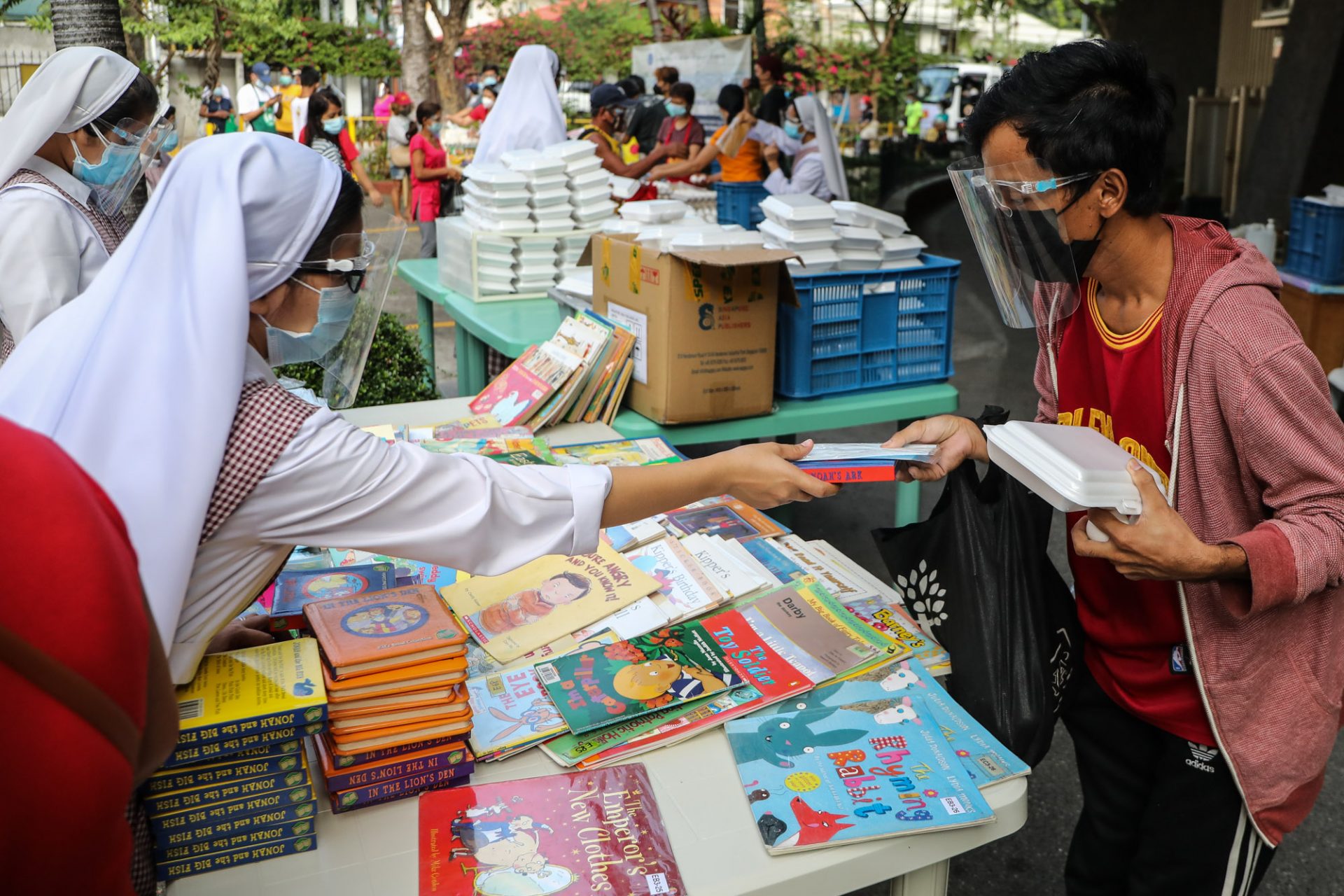Reflection for the 14th Sunday in Ordinary Time (Cycle C)
Our happiness as Christians rests solely on the promise of protection from the Spirit of Love, not on the promise of power from the Spirit of justice. Our Abba is committed to care for the community that is the Church; and the Church is in turn, determined to take care of us, its individual constituents.
In this lies our true joy as disciples of the Christ, as servants of his reign. “Rejoice for Jerusalem and be glad for her, all you who love her …. For this is what Yahweh says: I will send her peace, overflowing like a river; and the nations’ wealth, rushing like a torrent towards her. And you will be nursed and carried in her arms and fondled upon her lap …. At the sight of this, your heart will rejoice; like grass, your bones will flourish. For it shall be known that Yahweh’s hand is with his servant.”
It seems it comes with our self-centered nature to think that to be liked by God, is to be like him. We typically presume that “being special in his eyes” means “being extraordinary in the eyes of others,” capable of performing God-like feats, or rendering God-like blessings which in a deliberately misleading way, endears people to us rather than to God.
We must remember that Christianity is a religion professing mutual responsibility for others. It is a confession of faith in the love and defense of the divine for the human mission of love and care for the rest of creation, consequently calling attention only to the providence of the divine, and not to the compassion of the human. It is a courageous campaign of literally bringing people back to God.
Therefore, it must be clear that our spirituality demands the exact opposite of a focus on the self, and of a focus beyond the self which will paradoxically bring happiness, a praxis of self-emptying which will engender the hope of fullness. It is a joyful life of literally being centered only on God.
In this sense, happiness comes much less from what we are committed to give, but much more from what we do not deserve to receive. Nor does it depend on the outcomes of the service we have given, but simply from the innocent surprise for the many gifts we have been given. The Christ clearly admonishes us, “Nevertheless, don’t rejoice because the evil spirits submit to you; rejoice, rather, that your names are written in heaven.”
Self-centeredness though not evil, tends us towards it. When we become too comfortable with what we think we are doing in his Holy Name, we may become too proud of having “done it ourselves” rather than being humbled “as mere instruments for God’s use.” Worse, we may become too desirous of wanting more than what we believe we deserve from him, and consequently, we may become despondent, wrathful and rebellious when we fail. No wonder our Lord lamented, “The harvest is plentiful, but the workers are few.” Who would wish to become “lambs among wolves” when we cannot become “wolves” ourselves?
However, in the language of God, what matters most is “to try our best, while he takes care of the rest.” Our pathway towards the fullness of union with him, begins at the crucial moment of choice not to “wish to take pride in anything, except in the cross of Christ Jesus, our Lord;” and ends at the ultimate moment of sacrifice when “Through [Christ], the world has been crucified to me, and I to the world.”
As itinerant servants for the “new creation” of “peace and mercy,” we work hard for the accomplishment of Christ’s mission, seeking not what we deserve, rather hoping we acquire only what we need. It is only in rejoicing for the love of Love that we can avoid the mindset of being “self-centered, proud and avaricious wolves,” and that we will be prepared to meet death; for an honorable oblation can only be understood in the context of being “selfless, humble and obedient lambs.”
It is only in living in the love of Love that we can resiliently accept triumph or defeat, success or failure, prosperity or poverty, consoled solely and truly in the goodness offered by those we have sworn to serve, and in the companionship which God can only provide.
And so, we are impelled to persevere for a victory which God only knows.
Brother Jess Matias is a professed brother of the Secular Franciscan Order. He serves as minister of the St. Pio of Pietrelcina Fraternity at St. Francis of Assisi Parish in Mandaluyong City, coordinator of the Padre Pio Prayer Groups of the Capuchins in the Philippines and prison counselor and catechist for the Bureau of Jail Management and Penology.







